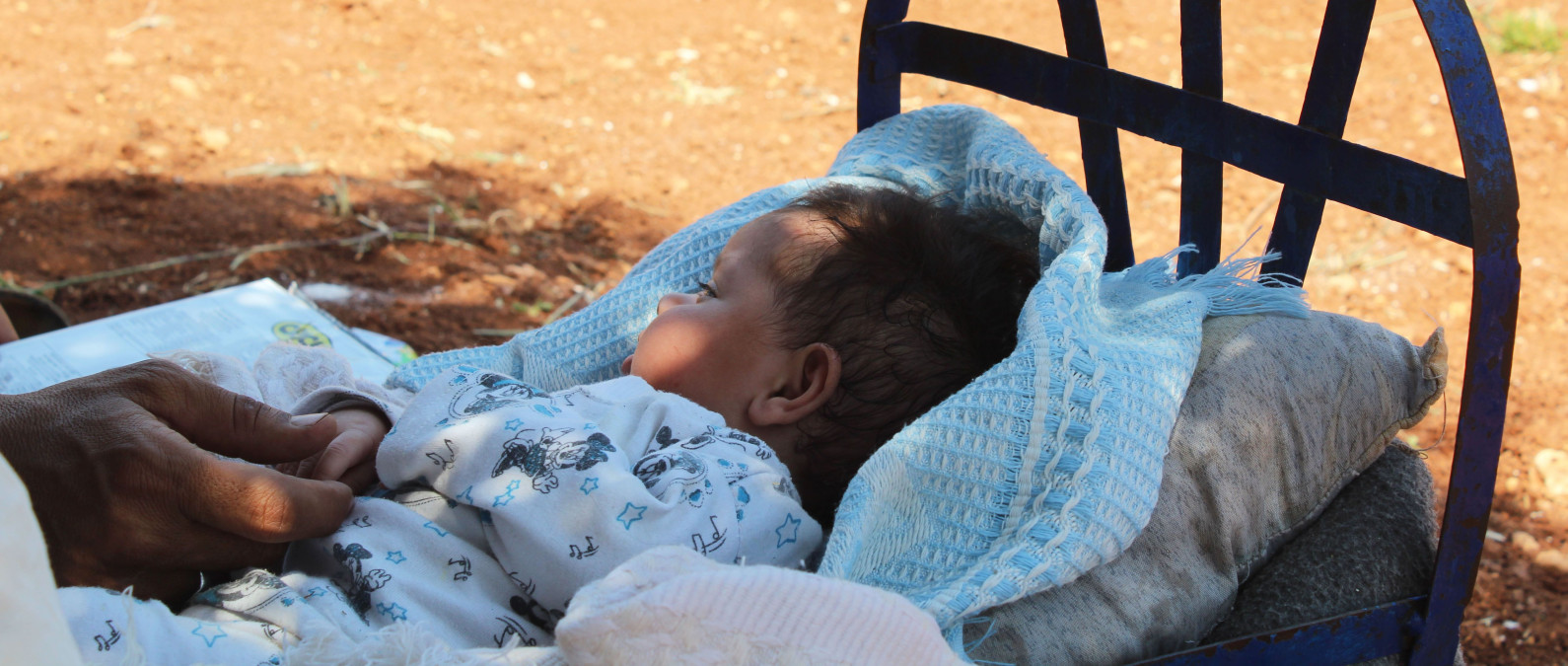Schools and hospitals bombed in Syria; over one hundred and fifty thousand flee in a week
Published: May 15, 2019 Reading time: 4 minutes Share: Share an articleIdlib, Syria (5th May 2019)

In one week alone, from 29 April to 5 May 2019 over 150,000 people in northwest Syria fled their homes due to intensive airstrikes and bombings, and the movement of displaced people continues. In the same week, at least twelve health facilities were bombed, affecting an estimated 100,000 civilians who rely on them for lifesaving services. At least ten schools have also been bombed.
“Day by day, thousands more people are moving north,” said Rodrigo Serqueira, Syria Country Director for People in Need. “Whole villages have been evacuated. We are witnessing the continuous bombardment of areas with high populations of civilians."
“We know the people affected. We have worked with them, in villages and towns across southern Idlib and northern Hama, and we are seeing the tragic consequences. In the early hours of Thursday 9 May, a school we support was bombed. In another village later that same day, an 8-year-old girl from another school we support was killed by a bomb. A third school we support was also bombed last week, this one for the second time this year.”
Some of the essential humanitarian programmes run by People in Need—including the distribution of food kits and running of cash-for-work activities in areas close to the frontline—have had to be suspended and our staff forced to relocate. Other humanitarian organizations are in the same situation.
The destruction caused by an airstrike to the home of a People in Need staff member in southern Idlib, on 2 May 2019. He and his family had evacuated the building just minutes before.
In the areas where it is possible, we are scaling up to reach an additional 2000 people in the next two weeks, and we have additional emergency food and hygiene supplies on the way. But most camps further north are already overcrowded, leaving many to sleep under trees. An estimated 3.5 million civilians are currently trapped in the Idlib area, almost half of whom are internal refugees from elsewhere in Syria. Infrastructure was already at a breaking point before the escalation.
“Not only are the levels of airstrikes and destruction indescribable, but also the expressions of fear on people’s faces,” one of our colleagues in Idlib told us. “Standing on the side of any road or highway leading north, you can see all the vehicles that are passing, transporting people and their luggage to the unknown.”
“In the last few weeks, everything has changed,” says Raed, who is sleeping under an olive tree with his wife and five children. Raed’s family had already fled the fighting three times, before settling last winter in a village in southern Idlib. “We decided not to leave, until a barrel bomb hit in front of our home.”
A lentil and cumin farmer in his home village, Raed worries now about how to look after his children. “We are still trying to get a tent or find somewhere to stay.” He hopes that the rest of the world will “see and consider our situation... to see the displaced people, intervene and find a solution.”
This escalation has been justified by the continuing presence of extremists in the area. But it is the millions of ordinary civilians trapped there who are bearing the brunt of the violence, many of whom have in fact suffered at the hands of hardline groups.
We join Syrian and international NGOs in calling for the following actions:
- Implement an immediate ceasefire: Schoolchildren and other civilians are not a target. They must be protected. We therefore call on all actors in the conflict to implement a ceasefire and end the indiscriminate targeting of civilians.
- Protect civilians: Bombings and airstrikes in populated areas violate international law, which protects civilians even in a time of war. All parties to the conflict must uphold their responsibilities, and the international community must ensure this is the case.
- Guarantee aid: Access to life-sustaining aid is also protected by international law. All humanitarian actors must be allowed to continue operating under the umbrella of humanitarian law All parties must guarantee the safety of local humanitarian workers, and the safeguarding of critical public infrastructure such as hospitals, water networks and schools.
- Pursue a peaceful resolution to the conflict: A ceasefire is a stopgap measure, not a solution. All parties must urgently seek a political agreement in northwest Syria, in line with UN Security Council resolution 2254.
Our colleagues living in Idlib, along with the many thousands of people we serve, deserve that these steps be taken without delay.
For interviews and further information, please contact:
Tomas Kocian, PIN Regional Director for Middle East, +420 777 787 970
Rodrigo Serqueira, PIN Country Director - Syria Response, +964 751 741 0120



